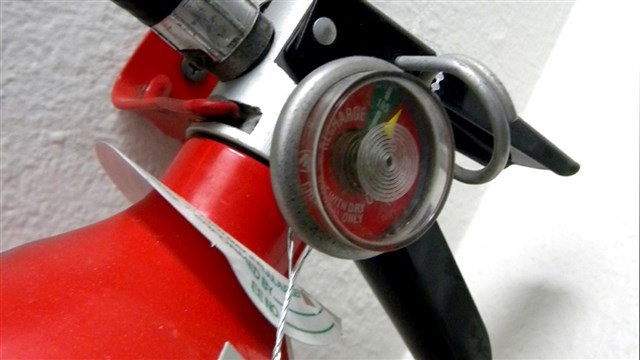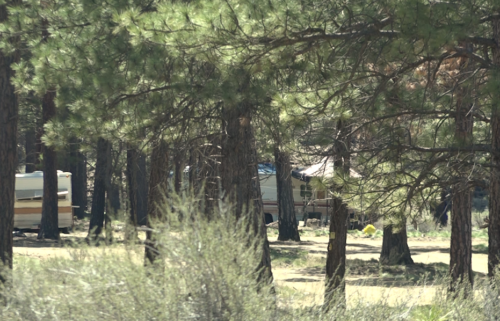Vehicles can spark wildfires; NW officials urge carrying an extinguisher

PORTLAND, Ore. (KTVZ) -- As many people in the Pacific Northwest head out for activities and summer road trips, the Pacific Northwest Wildfire Coordinating Group offers the reminder that vehicles and other equipment can spark wildfires during the hot and dry months of summer.
During fire season, equipment-sparked fires are the leading cause of wildfires in Oregon and, within that category, vehicles are the top culprit. Keep Oregon Green’s Executive Director Kristin Babbs offers a recommendation: “The best way to prevent a small equipment issue from igniting a large wildfire is to carry an up-to-date fire extinguisher in your vehicle and know how to use it. Fire extinguishers have saved the day this summer, whether on people’s own vehicles or travelers coming to the aid of others.”
As of July 29th, there have been 2,279 wildfires in Oregon and Washington, and 87 percent of them have been human-caused. In Washington, there have been 1,115 human-caused wildfires out of 1,172, while of the 1,106 wildfires to date in Oregon, 871 of them were started by humans. The Pacific Northwest has had numerous large wildfires already this season; it is important for people to pay extra attention to avoid doing anything that could start a wildfire.
Under hot, dry conditions, all types of motorized vehicles can ignite a wildfire. An above average risk of large fires is expected in central Oregon, southwest Oregon, southeast Oregon, and central Washington through August. Fire officials ask for your help. Follow these basic safety tips when you ride or drive to keep an enjoyable outing from turning into a costly, damaging wildfire:
TIPS TO REDUCE VEHICLE WILDFIRES
- Ensure all parts of your vehicle are secure and not touching the ground. A loose safety tow chain or muffler dragging on pavement can send a shower of sparks into dry vegetation, igniting not one but several wildfires along a roadside.
- Check your tire pressure and look for signs of wear. Once a flat tire shreds, the bare wheel on pavement can cast sparks onto roadside vegetation. This scenario has resulted in numerous Pacific Northwest wildfires. Likewise, poorly lubricated wheel bearings can overheat and ignite, and the metal-on-metal contact of a worn-out brake can emit sparks. Ensure that they receive regular maintenance.
- Maintain vehicles and equipment by cleaning exhaust systems and spark arrestors so they are undamaged and functioning properly. A worn-out catalytic converter can degrade and cast off extremely hot pieces of material, and a faulty spark arrestor can shed hot metal. Engine compartments can collect debris and be receptive to sparks. Also, regularly inspect vehicle undercarriages to ensure that fuel and brake lines are intact and no oil leaks are apparent.
- A running vehicle’s exhaust system can reach temperatures up to 2,800 degrees Fahrenheit. Avoid driving, idling, or parking on tall, dry grass or piles of brush that can touch the underside of a vehicle. A few seconds of contact between dry grass and a hot catalytic converter or exhaust system can start a fire. Operate all vehicles on established roads and trails, and park on gravel surfaces or developed roadside pull-outs.
- Follow recreational forest laws during fire season, including whether off-road driving is permitted. Report all fires immediately. Always carry an approved fire extinguisher in vehicles, in addition to a cell phone, water, and a shovel.
- Make sure that your RV’s cooking appliances, generator, and propane system are all working properly.
- Respect private forestlands and their designated closure areas.



